- Learning time
- 30 minutes
- First play time
- 120 minutes
Orléans
Designed by: Reiner Stockhausen
In Orleans you are well-to-do lords in medieval France, assembling as many followers as you can in order to gain political supremacy. How you do this is a combination of strategy, tactics, and a little luck.
The board shows a map of the region and various goods tiles populate it. Each player begins with a merchant in Orleans itself, and as you move your merchant around the map, you can pick up these goods tiles (they’ll score points at the end) and establish trading houses in the towns (ditto). The other part of the board shows several tracks that keep tabs on your support from the various folk making up the populace: traders, monks, farmers, knights, and so on. Each player also has a personal player board in front of them that shows the places you can send your followers to on your turn.
Each round, you will pull followers from your own little cloth bag, and decide where they go. Followers can generate more followers, or allow you to move your merchant or build trade houses. As the game continues your bag fills up with more and more followers… but of course, you cannot predict which ones you’ll pull from the bag on a given turn, so you have to be adaptable. When a place is ‘full’ of followers, it gets activated and your followers return to your bag.
As you increase followers you move your support up the various tracks and gain additional benefits: a coin for the most farmers, the ability to draw more followers from the knights, and so on. You also – if you’re the first player to it – get to pick up citizen tiles, which mean points at the games’ end. One thing you mustn’t neglect is the Scholars, who increase your knowledge: at the end of the game your trading houses and citizen tiles are multiplied by your knowledge to give you points. Coins are also worth a point each, and goods tiles score between 1 and 5 points each, depending on the good.
Each round also has an event that might be good or bad, but it’s drawn at the start of the round so you do at least have a turn to react to it before the event is activated.
There’s a little more going on than we have space to go into here, but after 18 rounds the game is over, and most victory points wins!
The guru's verdict
-
Take That!
Take That!
Low... ish. It depends on the player count really. With 4 people can get in each other's way on the map, whereas with 2 there's more freedom. There are moments when someone may beat you to a reward on one of the tracks, however.
-
Fidget Factor!
Fidget Factor!
Low to moderate. There may be some pauses whilst someone debates how to place their followers, but players do all get to decide these things simultaneously, so Orleans can actually be pretty fast-moving.
-
Brain Burn!
Brain Burn!
Moderate. Your decisions are dictated by what followers you get from your bag, but there are definitely strategies to be had too: going scattergun probably won't win you this game on a regular basis...
-
Again Again!
Again Again!
There's a lot of replayability here: followers come out randomly, and so do the event cards. Plus; you can play the game with different strategies from the outset.

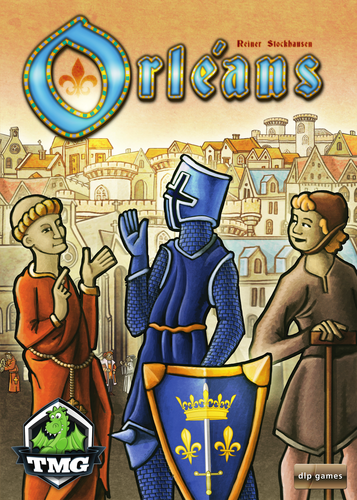
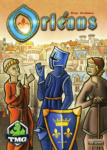
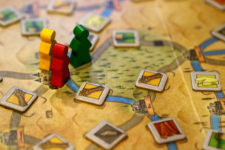
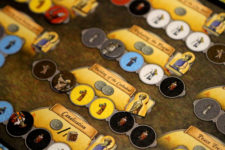
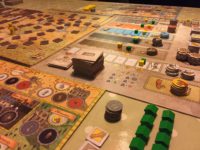
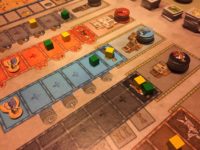
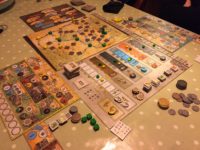


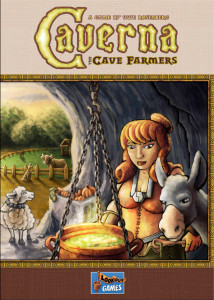
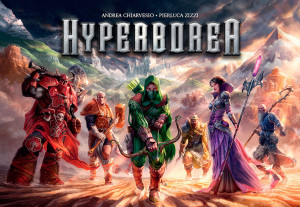
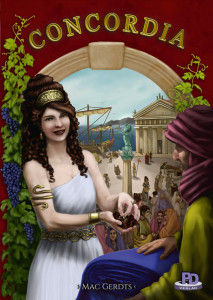
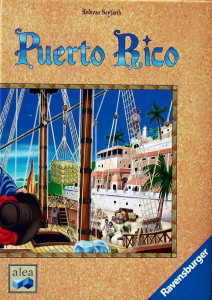
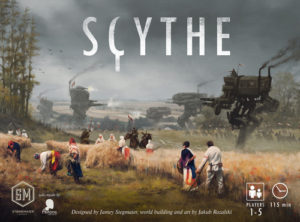
Sam says
It's not a game pulsating with player interaction, although with four there is tension on who gets what from the map. But - as with games such as Caverna, what's nice about Orleans is there is no 'wrong move' - it's more a case of trying to make the most productive ones. Not mentioned above is the beneficial deeds board, where you can effectively 'spend' followers to get benefits - this tends to fill up toward the end of the game, and there's additional tension here as the player who deposits the last follower for any 'deed' gets a citizen tile. There's something about drawing tiles from the bag that really appeals to me - will I get the scholarly followers I'm really hoping for? Or will I get a muddy farmer turn up at the door with his scythe of hay? Fans of this mechanic may want to try out the more apocalyptically-themed Hyperborea, which works similarly.